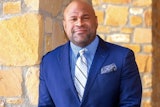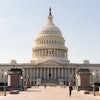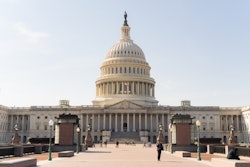Winning at Any Cost
By Julianne Malveaux
Under ordinary circumstances, I wouldn’t know a Tony Cole from a hole in the wall, or a Jim Harrick, either Junior or Senior, from a lamppost. Regular readers know me as a sports skeptic, not a sports fan. But I happened to be flying through Atlanta after Cole, a former player on the University of Georgia’s basketball team, gave ESPN an explosive interview, alleging that his coach had broken the rules by giving him cash and paying his bills before he enrolled at the university, and also giving him grades for classes he never attended.
I couldn’t miss the story — it made the front page of the Atlanta Journal-Constitution — but it morphed into more than a minor scandal. As I write, the University of Georgia (UGA) has decided its basketball team won’t participate in post-season play, even though they had a shot to win. The coaches have been suspended. And the president of the university has found his reputation smeared by the mess.
What went wrong? In hindsight, UGA President Michael Adams’ hiring of Jim Harrick Sr. and his son Jim Harrick Jr. was probably the original sin. The Harricks (Junior is the assistant coach) have a reputation of winning basketball games, but also a tarnished one. A Rhode Island columnist wrote that it took a new coach more than two years to clean up the mess the Harricks left at the University of Rhode Island (URI). There were allegations, settlements and myopia; with Jim Harrick telling ESPN that he had no idea URI had paid a settlement on his behalf.
Adams turned a blind eye to Harrick’s past and waived nepotism rules so he could hire his son. The Harricks brought the talented, but troubled, Tony Cole to Georgia from the Community College of Rhode Island, where he had been playing while hoping for a transfer to URI. Like the Harricks, Cole has a checkered past. He’d been accused of sexual misconduct at the community college, and was accused of the same at UGA. But Cole hasn’t been convicted of a crime.
When Cole was suspended from the team at UGA, but not reinstated while two other players implicated in the same incident were, he turned on the Harricks and told of their many violations of NCAA rules. At first, people dismissed his charges as vindictiveness. But investigations have shown that the Harricks hardly have clean hands and there is some basis to Cole’s charges. The UGA basketball program is in shambles. And some blame Tony Cole for the mess.
Cole is no angel, but he comes off as a bright young man. In an interview to the New Orleans Times-Picayune, Cole says he essentially lived on his own since age 15 after moving between relatives and foster homes. Shooting dice was one of the many ways he earned money. He sees himself as a survivor who wouldn’t be kicked around by the Harricks, who used and then discarded him when his presence was inconvenient.
Should I mention that the Harricks are White and Cole is African American? It matters only to the extent that there are racist undertones to some of the commentary that has been made about Cole’s role. Signs had been spotted at UGA listing three “public enemies” as Saddam Hussein, Osama bin Laden and Tony Cole. Other signs simply said, “Tony Cole can’t read this sign.” One columnist chided Cole as an ingrate (never mind the rules the Harricks broke) and predicted a future in prison or mopping floors at a convenience store. Through a subjective lens, I sense an implicit racial bias.
But that’s not the real story. The real story is how UGA, a competitive university with an excellent academic program, ends up generating so much ink for a sports scandal. What was Adams thinking when he hired a man with a checkered past and a history of skirting the rules? I have less of an issue with the Harricks bringing Cole on to play — the troubled youth deserved a chance. I just wonder why they didn’t follow the rules with him.
Then there is the issue of the rules, their fairness and their efficacy. What sense does it make to treat campus sports as a cash cow, but tell the youngsters generating the cash that they can’t have any of it? Some of the NCAA rules are impractical and unreasonable, especially when low-income youth are exposed to cash that they sometimes desperately need but can’t have. The Harricks sound like bad apples, but their attempts to help Cole out may well have been humane. They just didn’t follow the rules, as on previous occasions, and, if they knew the rules really didn’t work, they didn’t do anything to change them.
The University of Georgia hardly has a monopoly on breaking the rules. Ask Enron, WorldCom, Arthur Andersen, Tyco and other corporate scalawags about their interpretation of ethics and their ability to follow the rules. Still, I’d like to think that there is at least a little “ivory” in the ivory tower, a greater sense of ethics on campuses than in the community (who am I kidding?). At UGA, the need to win caused President Adams to hire a father-son team with a history of bending rules. The attempt to win at any cost has created collateral damage, and a list of losers including those excellent, but now tarnished, UGA sports scholars — all because their coach didn’t care enough about the game to play by the rules.
© Copyright 2005 by DiverseEducation.com















